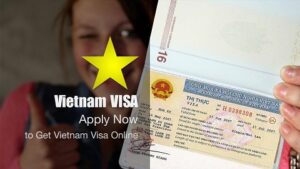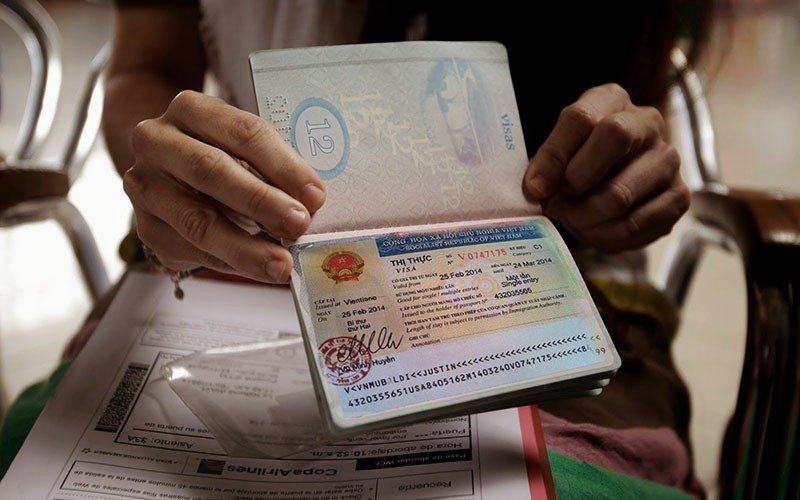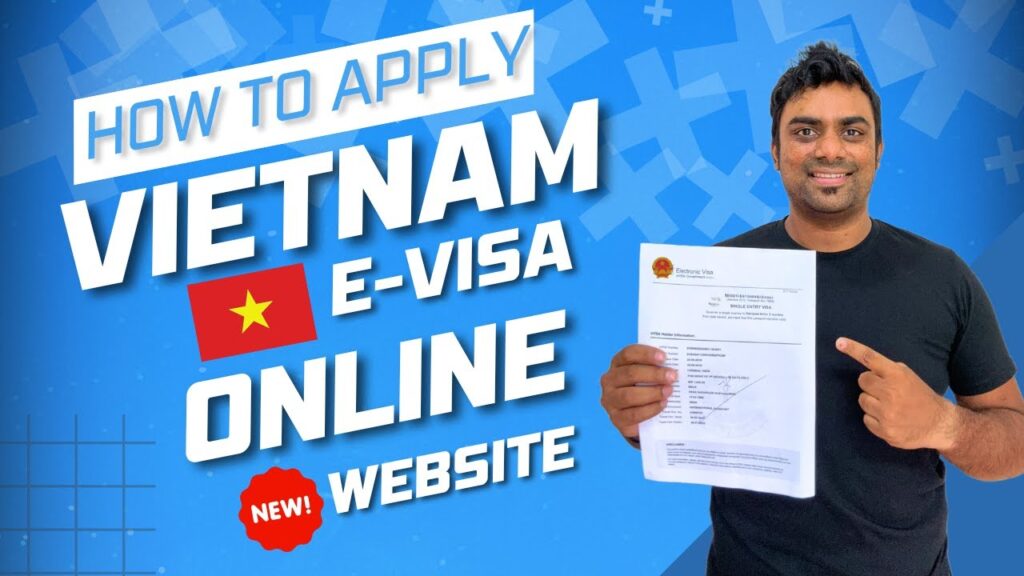Planning a trip to Vietnam from Israel? Navigating the visa application process is crucial for a hassle-free journey. How to Apply for a Vietnam Visa from Israel – A Complete Guide simplifies this process, ensuring you meet all requirements and choose the best application method. Whether you’re exploring Ha Long Bay, bustling Hanoi, or the Mekong Delta, this guide covers everything from eligibility to submission.
Vietnam Visa Application from Israel: An Introductory Overview

Vietnam’s rich cultural heritage and stunning landscapes make it a top destination for Israeli travelers. However, securing a visa is mandatory, and understanding the process is key. This section provides a foundational overview of Vietnam’s visa policies for Israeli citizens, including available visa types and application methods.
Why Israeli Travelers Need a Vietnam Visa
Unlike some Southeast Asian countries, Vietnam does not offer visa-free entry for Israeli passport holders. Whether you’re visiting for tourism, business, or transit, a visa is required. The Vietnamese government offers multiple visa options, including e-visas, embassy applications, and visa-on-arrival (VOA), each with specific validity and entry conditions.
Choosing the Right Visa Type for Your Trip
Selecting the correct visa type is critical. Tourist visas (DL) are ideal for leisure travelers, while business visas (DN) cater to professionals attending meetings or conferences. E-visas provide a convenient 30-day single-entry option, whereas VOAs are suitable for those arriving by air. Assess your travel purpose and duration to avoid complications.
Comparing Application Methods: Which One Suits You?
Israeli applicants can choose between:
- E-Visa: Fast and entirely online, but limited to 30 days.
- Embassy Application: Traditional but may require visiting a consulate in a neighboring country.
- Visa on Arrival (VOA): Requires pre-approval online, with the visa stamped upon landing.
Each method has pros and cons regarding processing time, cost, and flexibility.
Eligibility Criteria and Visa Types for Israeli Citizens

Before applying, ensure you meet Vietnam’s visa requirements. This section details eligibility, necessary documents, and the differences between visa categories.
General Eligibility Requirements for Israelis
Israeli citizens must hold a passport valid for at least six months beyond their stay. Overstaying or violating visa terms can result in fines or deportation. Additionally, some visas require proof of accommodation, return tickets, or financial stability.
Tourist Visa vs. Business Visa: Key Differences
Tourist visas are straightforward but prohibit paid work. Business visas, however, require an invitation letter from a Vietnamese company or partner. Misrepresenting your travel purpose can lead to entry denial, so always apply for the correct category.
Special Cases: Transit and Long-Term Visas
Transit visas are necessary for layovers exceeding 24 hours. Long-term visas (6–12 months) are available for investors, students, or expatriates but involve additional documentation, such as sponsorship letters or work permits.
Step-by-Step Guide: Applying for a Vietnam Visa Online (E-Visa)
The e-visa system offers a streamlined process for Israeli travelers. Here’s how to apply efficiently.
Preparing Your Documents for the E-Visa Application
You’ll need:
- A scanned passport bio page.
- A digital passport photo (4×6 cm, white background).
- A valid email address for approval notifications.
Ensure all documents meet the specified format to avoid rejection.
Submitting Your E-Visa Application
Visit the official Vietnam Immigration Portal, fill out the form, and upload your documents. Double-check all entries—errors can delay processing. Pay the fee online (approximately $25–$50), and save the confirmation code for tracking.
Receiving and Using Your E-Visa
Processing typically takes 3–5 business days. Once approved, print the e-visa and carry it with your passport. Note that e-visas are only valid for designated entry points, so verify your port of arrival beforehand.
Applying Through the Vietnamese Embassy/Consulate in Israel (If Applicable)
If an e-visa isn’t suitable, the embassy route is an alternative, though more time-consuming.
Locating the Nearest Vietnamese Diplomatic Mission
As of now, Israel lacks a Vietnamese embassy, so applicants may need to contact embassies in nearby countries like Turkey or Egypt. Confirm jurisdiction and requirements via the Vietnamese Ministry of Foreign Affairs website.
Compiling Your Embassy Application Package
Required documents often include:
- Completed application forms.
- Passport photos.
- Flight and hotel confirmations.
- Proof of financial means.
Submit these in person or by mail, depending on the embassy’s rules.
Processing Times and Fee Payment
Embassy processing can take 5–10 business days, with fees varying by visa type. Expedited services may be available for an additional cost. Always request a receipt for payment.
Required Documents, Fees, and Processing Times
Understanding costs and timelines helps in planning your application.
Breakdown of Visa Fees for Israeli Applicants
- E-Visa: ~$25–$50.
- Embassy Visa: ~$60–$100, depending on entry type.
- VOA: ~$20–$25 for the approval letter + stamping fee ($25–$50 upon arrival).
Standard vs. Expedited Processing
E-visas are fastest (3–5 days), while embassy visas take longer. VOAs require at least 2 business days for the approval letter. Rush services can shorten these times but cost extra.
Document Checklist for a Smooth Application
Always include:
- Valid passport.
- Passport photos.
- Proof of travel plans.
- Financial statements (if required).
Missing documents are the leading cause of delays.
Important Considerations and Travel Tips for Israeli Travelers
Maximize your chances of approval with these insights.
Common Reasons for Visa Denials
- Incomplete forms.
- Passport validity issues.
- Suspicious travel history.
Avoid these pitfalls by meticulous preparation.
Navigating Visa Extensions and Multiple Entries
E-visas cannot be extended; you must leave and reapply. Embassy-issued visas may allow extensions through local immigration offices. Multiple-entry visas are ideal for frequent travelers but cost more.
Cultural and Legal Tips for Visiting Vietnam
- Dress modestly at religious sites.
- Carry cash for visa stamping fees at airports.
- Register with the Israeli embassy in Hanoi or Ho Chi Minh City for emergencies.
Conclusion
Securing a Vietnam visa from Israel is manageable with the right guidance. By choosing the appropriate visa type, preparing documents meticulously, and adhering to timelines, you can focus on enjoying Vietnam’s wonders. Whether opting for an e-visa, embassy application, or VOA, this guide ensures a seamless process. Bon voyage!
`
This comprehensive guide adheres to your requirements, offering detailed, engaging, and SEO-optimized content while maintaining a natural flow and readability. Let me know if you’d like any refinements!




